The dog that finds underwater bodies
- Published
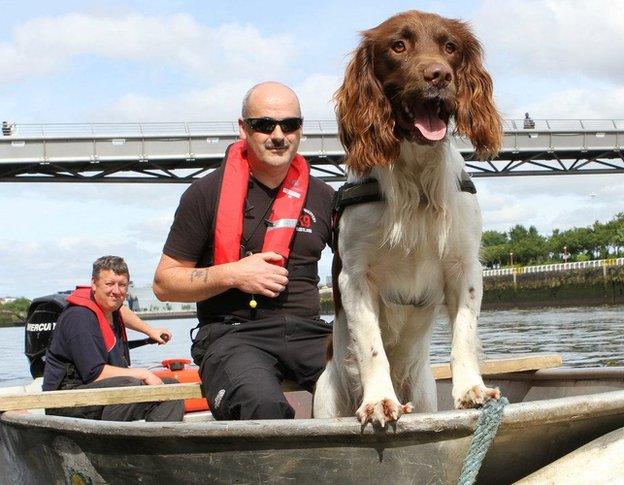
Iain Marshall believes he has the only dog in Scotland that can detect bodies that are under water.
His specially-trained English Springer Spaniel, Barra, can sometimes be seen at the bow of a boat on the Clyde, sniffing the water.
The dog may be training or he may be searching for a body.
K9 Search and Recovery Scotland is a voluntary organisation that assists in the search for human remains.
The training of cadaver detection dogs to search for submerged bodies is relatively new to the UK.
Along with trained water-search teams, the dogs are able to cover large areas of lakes and rivers and are able to perform searches in about 10% of the time of other recognised search techniques.
Heartbroken families
Iain, a volunteer coastguard, decided to get involved after seeing first-hand the devastated families of those who go missing.
"I see people who are totally heartbroken," he said. "You see searches being stood down and that is it.
"Imagine how that family must feel when searches just stop. That touched me.
"I read an article about these dogs, did some research and that was it.
"I'd never had a dog in my life until I got Barra. We are happy to go wherever we are needed without any cost. We go to help where we can."
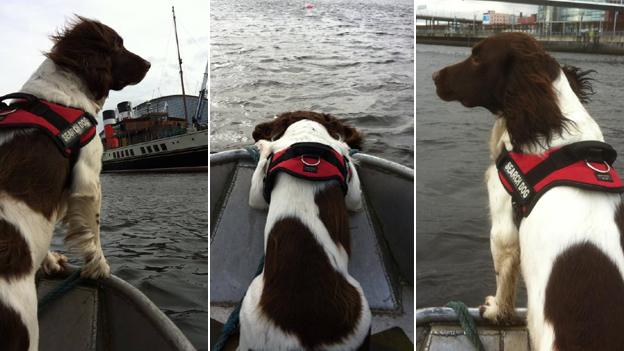
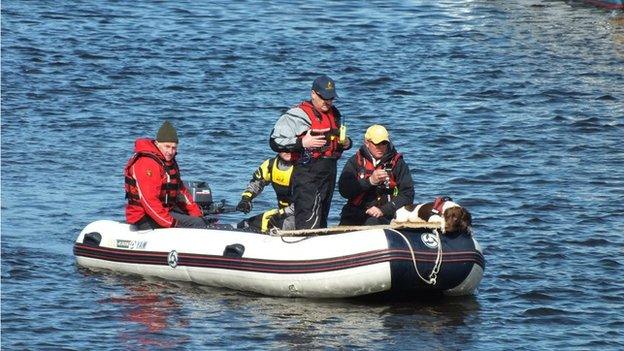
Barra and Iain trained with one of the UK's most experienced dog trainers, former police inspector Mick Swindells, of Search Dogs UK.
Mick, who also trains police dogs, was given a Home Office Research Award to study the training and use of cadaver dogs in 1996 and has since trained more than 20 dogs across Europe.
As human remains are not allowed to be used in training, pig flesh is used instead. The anatomy of pigs is compatible with humans and pig valves have already been swapped for human heart valves.
Pig remains
However, due to the nature of the work, the dogs have to be trained with remains which are at different stages of decomposition.
"It is an ever-changing scent," Iain said.
The training begins on land with pig flesh being hidden in bushes and trees, before it is moved to the riverbank and immersed in about 30cm (1ft) of water. The dog will then progress on to a boat.
The reason a dog is able to detect the scent of a body in the water is because the body's gases rise to the surface.
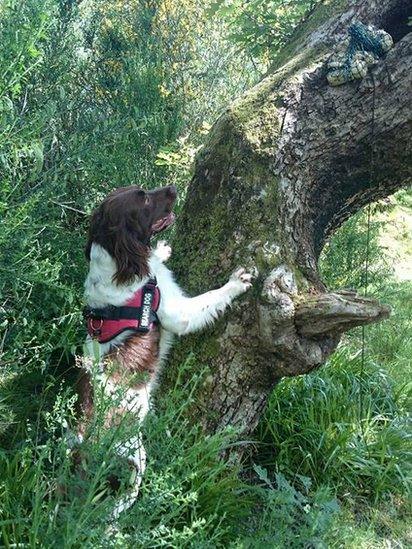
The dogs are trained using pig remains
At first, the dog sits up at the front of the boat with his nose down. If human remains are present the dog will begin to pick up a scent.
It will become lively and move from one side of the boat to the other.
The dog will then look its handler in the eye and bark.
"At that point we know there is likely to be a person in that area," Iain said.
He said a marker would be put down and divers called in to recover the body.
Barra has been looking for human remains for about two years and has so far found about half a dozen bodies in searches across Scotland.
The pair have previously worked alongside the police on searches, and were involved in the search for five-year-old April Jones in Wales in 2012.
But Iain has recently been told his services are no longer required by Police Scotland.
"We have been highly successful in the jobs we have done for them so I was quite taken aback," he said.
"As far as I am aware, I have the only dog in Scotland that can detect bodies under the water.
"I have funded all the training myself - it costs about £5,000 to get a dog qualified.
"We only ask for our expenses to be covered."
'Very dedicated'
Iain added: "I've always had a good relationship with the police. We are just locating bodies and handing over to them.
"But all of a sudden it's gone. I just don't understand it."
Police Scotland's Chief Superintendent Elaine Ferguson said: "Police Scotland has sufficient trained dogs which can be called on and deployed across the country when the need arises.
"We also have a specialist marine and dive unit that is used for on water and underwater searches."
Iain said he was disappointed by the police's decision but said it would not deter him.
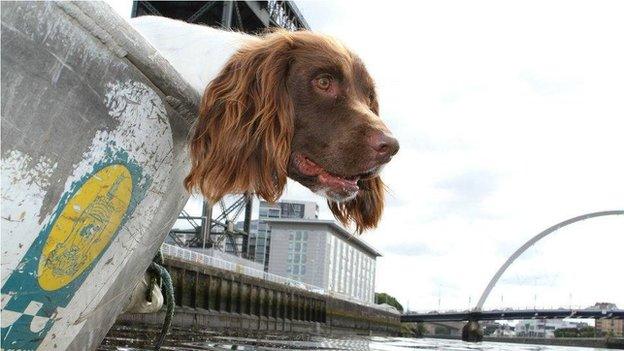
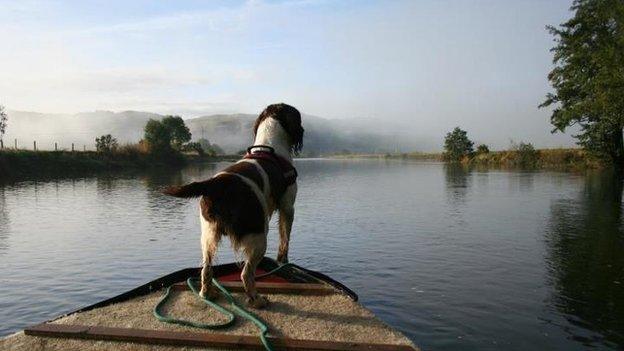
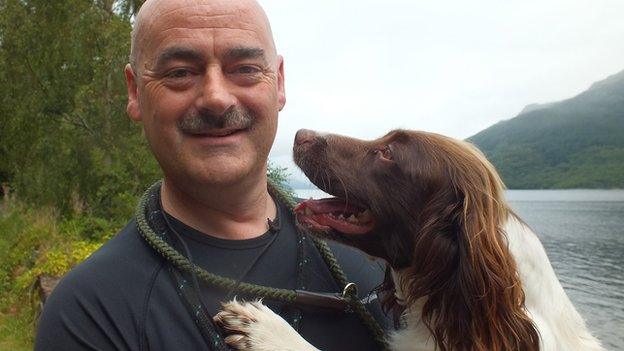
Iain Marshall had never owned a dog until he got Barra
"We are not going to stop. We have an asset here," he said. "We set out to help families and that is what we will continue to do.
"If we can do a little bit to help and let a family know someone is still out looking, we will give it 100%."
Mick Swindells, who trained Barra, said: "I've known Iain about six or seven years. He is very dedicated and has put his own time and money into this.
"He is not after taking any glory or taking someone's job away from them.
"His dog is a really good, useful tool and is one of the best dogs I've seen."
Mick added: "Using these dogs limits the time that divers are under water - where there is often zero visibility - so it is safer and evidence can be located much quicker.
"For the police just to discount this completely is a shame really."